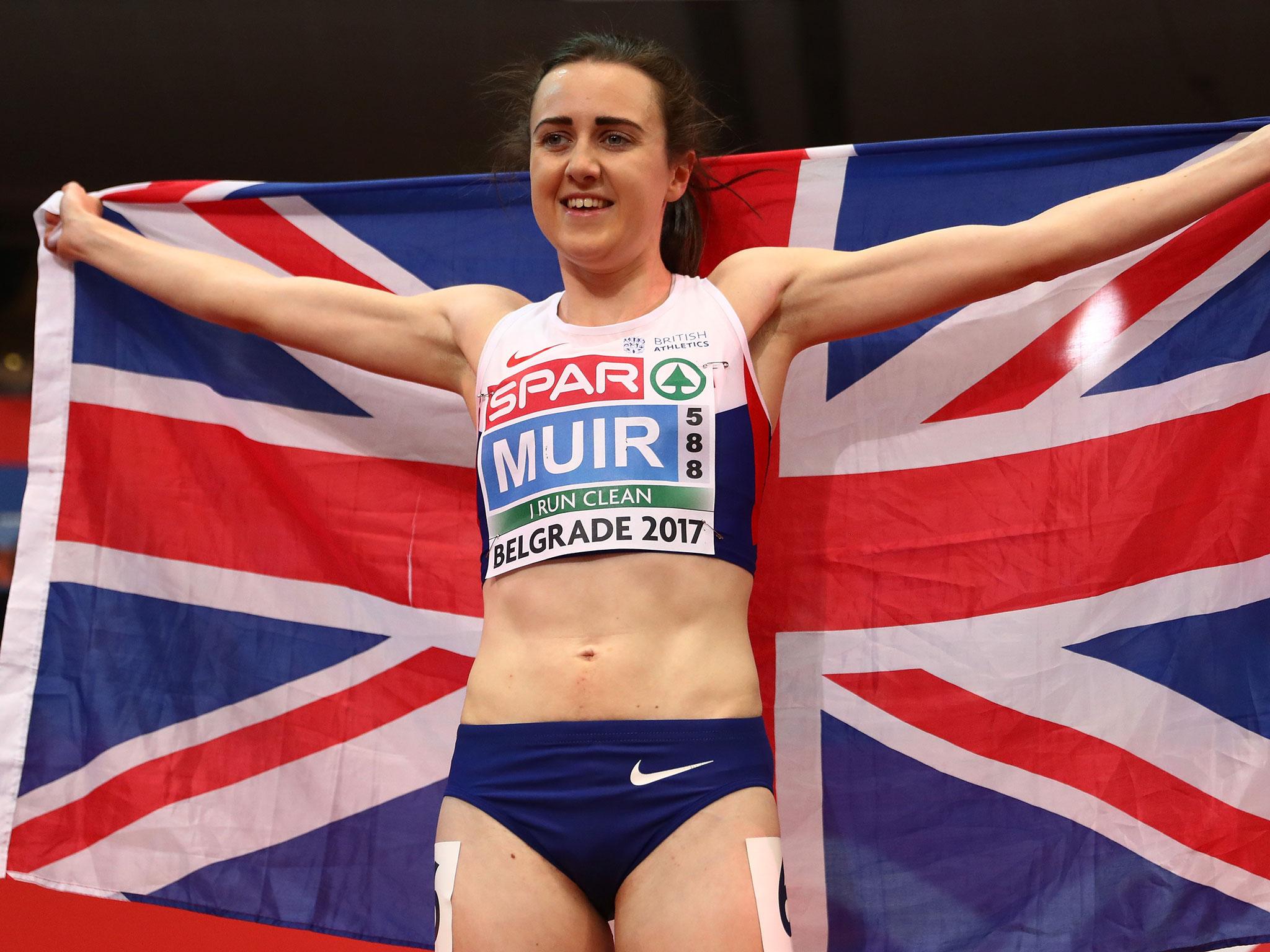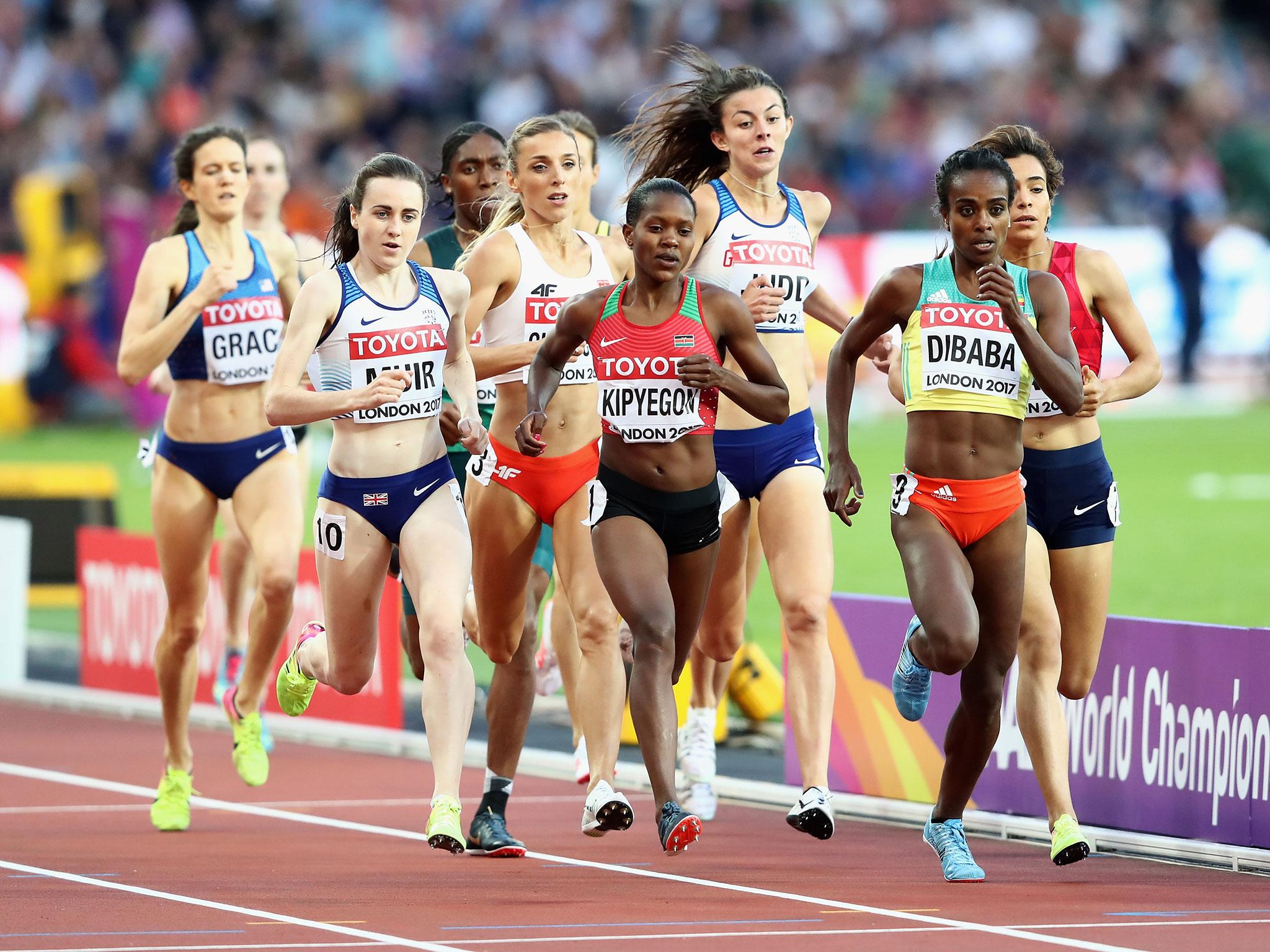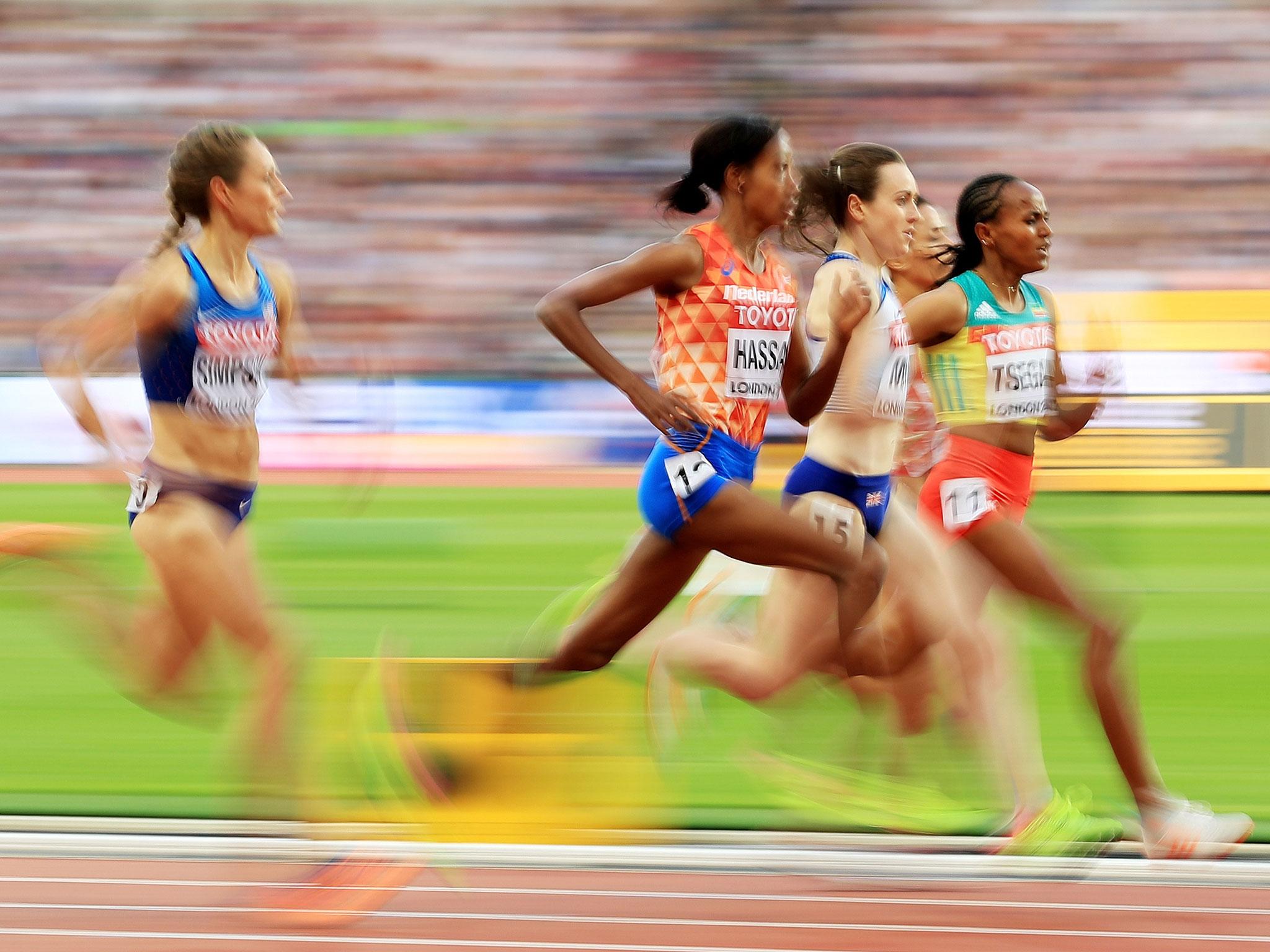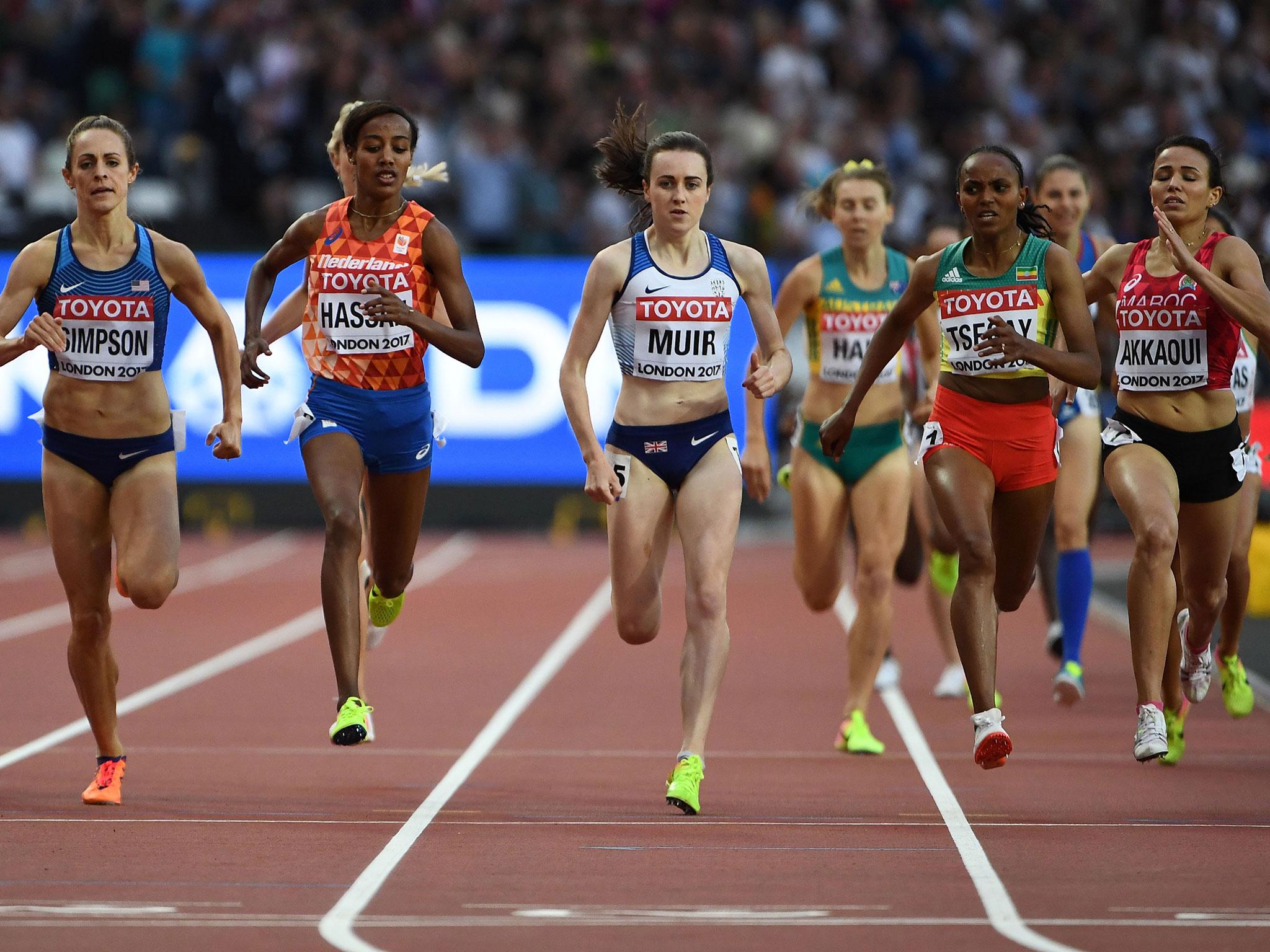Laura Muir on London, highs and lows, her love of animals and being the new poster girl of British athletics
Muir goes for gold on Monday evening and she and her coach are quietly confident she will give the home fans something to cheer about

Your support helps us to tell the story
From reproductive rights to climate change to Big Tech, The Independent is on the ground when the story is developing. Whether it's investigating the financials of Elon Musk's pro-Trump PAC or producing our latest documentary, 'The A Word', which shines a light on the American women fighting for reproductive rights, we know how important it is to parse out the facts from the messaging.
At such a critical moment in US history, we need reporters on the ground. Your donation allows us to keep sending journalists to speak to both sides of the story.
The Independent is trusted by Americans across the entire political spectrum. And unlike many other quality news outlets, we choose not to lock Americans out of our reporting and analysis with paywalls. We believe quality journalism should be available to everyone, paid for by those who can afford it.
Your support makes all the difference.Andy Young still vividly remembers the first time he met his protégée Laura Muir. “I was doing the freshers training session for Glasgow University athletics club back in 2011, and she came down with a friend, this other girl who’d been tipped as the exciting talent,” he chuckles. “I’d had a message from her East of Scotland coach, advising me to give this girl a watch. But it was evident very early on that it was actually Laura who had something special about her.”
Young was instantly convinced he had a future world class performer on his hands, later texting a friend that he’d just watched the next Paula Radcliffe or Kelly Holmes. “There was a fiery determination about her,” he recalls. “I put her in with some of the boys, and she was chasing them down, racing as hard as she could.”
What impressed Young most was Muir’s unique versatility, a characteristic which will be on display at the World Athletics Championships as she looks to contend for medals over both 1500m and 5,000m.
“She’s always had a bit of speed about her, and a really good engine, and that combination is what makes her special,” Young says. “She has a kind of range which I’ve probably never seen before. She’s run 1:58 at the 800m, which is the 8th fastest British time ever, and she can run a world class 10,000m. Normally you’re either born with fast twitch fibres and you’re a sprinter, or slow twitch fibres and you’re a distance runner. It’s rare to have someone with enough of both to compete at an elite level over such a range of distances.”
Young regularly enjoys joking with Muir that she could probably run a world class marathon. “Never!” she declares in our interview. “Well, I might do one for fun one day, and jog round it.”
Muir’s rapid emergence on the international scene, earning her first GB vest just a matter of months after starting university, has been all the more astonishing given that she largely slipped under the radar as a teenager, never even representing Scotland in schools events. But less four years after beginning her veterinary medicine course at Glasgow, she finished 5th in the 1500m at the Beijing World Championships.
“I’d never really stood out or been recognised as a prospect,” she said. “I spent my teens in a wee Scottish bubble. I was good at school but during that period I only won a single race as a junior. I typically made finals, but came last. But my career took off after I started working with Andy.”
For the past six years, it has been Young who has masterminded her training schedule to allow her to peak for major championships, learning to navigate the minefield of university assignments required to train as a vet. “It’s turned my hair grey,” he laughs. “We don’t just have to plan 1 year down the line, but 3, 4, 5 years.”

After nearly seven years, next spring Muir will finally sit her last exams, having been virtually the only elite athlete to combine world class competition with lectures, hospital rotations and stints on farms. Young shakes his head in disbelief as he describes his charge’s relentless schedule. After winning double gold at the European Indoors in March, she returned from Belgrade to begin work in a vet practise the day after the championships ended. Barely a week after the 5,000m final in London, she begins an eight month long series of full-time placements, stretching until next April.
“Fitting it in with all the training typically means I’m up an hour earlier, running along the canal in Glasgow in the pitch black,” she says. “I’ve been determined to find a way to do both though. I’ve always been there at training camps with all my textbooks. I remember one in Spain a few years ago where everyone else was heading down to the beach after the session, and I was back in the apartment studying. But it’s my dream. I’ve always wanted to be a vet right since I was little, and it’s why I came to Glasgow. Animals were my first love, definitely more than running. I always wanted pets growing up, and I eventually ended up with six pet rats living in my room in this massive cage I bought with some money I won from a race.”
Muir has enough to buy an entire menagerie now, if she wanted. Her performances in the past few years have billed her as the future poster girl of British athletics, landing her a Nike contract in the process, while becoming the only the third woman ever to win a prestigious Diamond League crown last summer netted her £30,000.
But while there have been many highs, the road to the top has also been filled with brutal lows. She was left in tears after tripping during the 1500m final at the Glasgow Commonwealth Games when seemingly set for a medal. Finishing 7th during the Rio Olympics final, having flown to Brazil as the second fastest woman in the world in 2016, was equally heartbreaking.

“Laura was hugely disappointed as we’d done everything right,” Young says. “She was in great shape, we’d managed to keep her healthy, got through the heats safely. And then the final kind of went according to our plans. I’d streamed video after video analyzing her competitors, mapping out what they were likely to do, and it seemed to be working. The plan was to get her up near the front by the end of the second lap, so she could go with her rivals when one of them made a big kick on lap three. But we didn’t think Dibaba was the same athlete she was in 2015. We didn’t think she could kick that hard.”
Genzebe Dibaba, the 26 year old world record holder and reigning 1500m world champion, had long been tipped for glory in Rio, but after an injury earlier in 2016, many were questioning her fitness. Young recalls the agonising moment mid-race when he realised she had more in the tank than he or Muir had bargained for.
“Laura was at the front when Dibaba kicked with 600m to go, and at the time I was actually already celebrating a little,” he says. “I thought she was guaranteed a medal at least. It was only 300m later when I glanced at the board to see what the split had been, when I realised we were in a bit of trouble. Dibaba had kicked at a pace that was so fast, it was too far inside Laura’s lactic tolerance. So with 300m left, she was filling up with lactic acid having thrown in such a fast lap. If it had been 1 second slower, Laura could have ended up with the silver medal.”
To this day, Muir has her own suspicions about that particular lap. Just weeks before the Olympic final Dibaba’s coach had been arrested by Spanish police after tubes of EPO were discovered in the hotel he was staying in. The two will lock horns again in the 1500m in London, but Muir says it’s always difficult to know if such feats are clean or not. Six athletes who competed in the equivalent final at London 2012, subsequently failed tests or were investigated for doping offences.
“I have my doubts, but these days you never know which races are clean and which aren’t,” she says. “You just have to run your own race, focus on yourself, and know that you yourself are running clean and to the best of your abilities.”

Muir is intending to make amends in London, but for a few weeks earlier this summer, she wondered if her chances of competing at a home World Championships had been robbed from her. She recalls the moment when her doctor presented a scan of her foot at the end of May, with a distinct line in it.
“I’d had this nagging feeling at the back of my mind that things weren’t quite right, but I’d never had a big injury before in my career,” she says. “When I saw that it was actually a stress fracture, it was a bit like ‘Why now!’ but luckily things seem to have healed quickly.”
After spending June aqua-jogging and doing lengths in the pool, Muir made a startling return to the track last month, smashing her personal best in the 800m in Lausanne. Once more her hopes of medalling both in the 1500m and 5,000m appear to be back on track.
“I’ve got a lot of confidence from winning at the European Indoors earlier this year as until then I’d missed out at quite a few championships,” she says. “I feel I’m a lot more relaxed and mentally tougher in races than I have been in the past, but the fields in both my events are extremely tough. The strength in depth is huge.”
Young is also keen to add some realism to expectations, pointing out that the current level across the women’s middle distance events from 800m to 5,000m has almost never been seen in history before. But he’s quietly confident that Muir has the ability to give the home fans something to cheer about.
“She’s now 24, and I’ve been saying for the past few years that this is when she will start to reach her peak physical development,” he says. “She’s now got the experience of major championships, she’s more developed in terms of her lactic tolerance. Everything until now, in a way, has been bonus territory. But even if she doesn’t win a medal in London, she’s still young. She’ll be at her peak until about 30, and the average age of British track and field athlete medallists now is typically around 29. She could still easily have another three Olympics ahead of her.”
Join our commenting forum
Join thought-provoking conversations, follow other Independent readers and see their replies
Comments